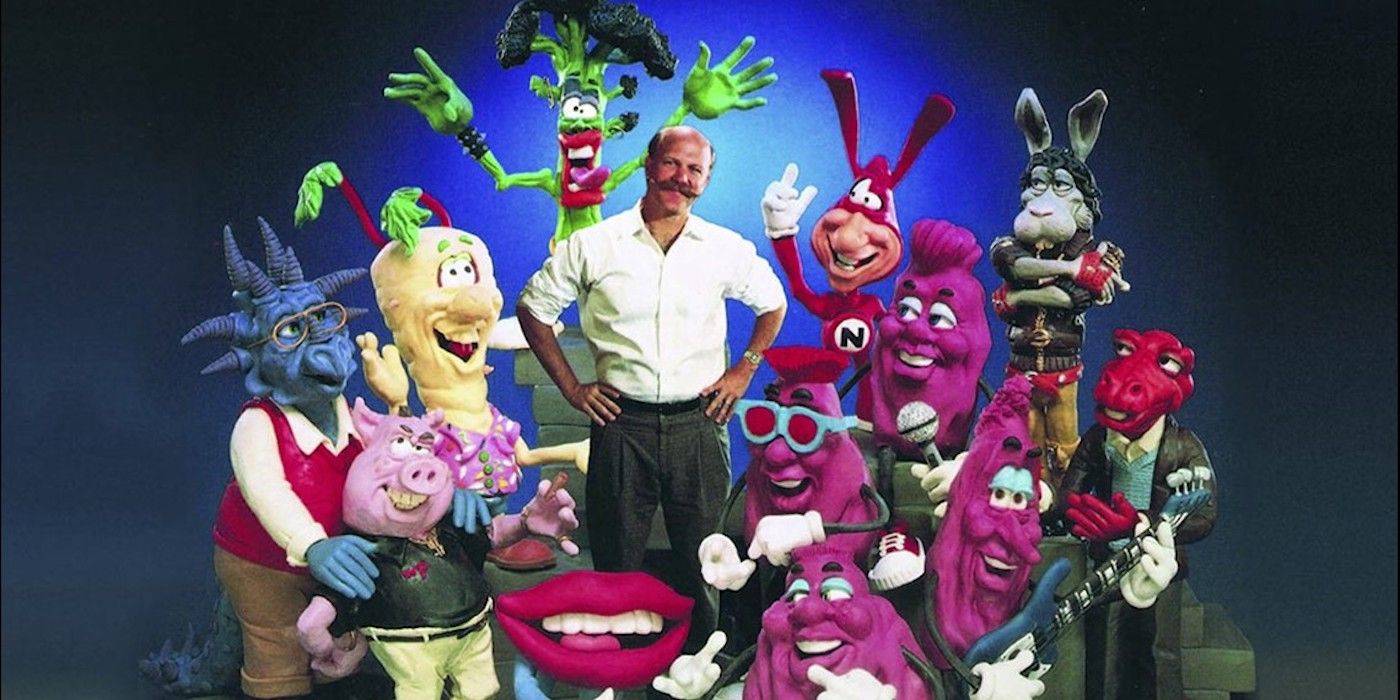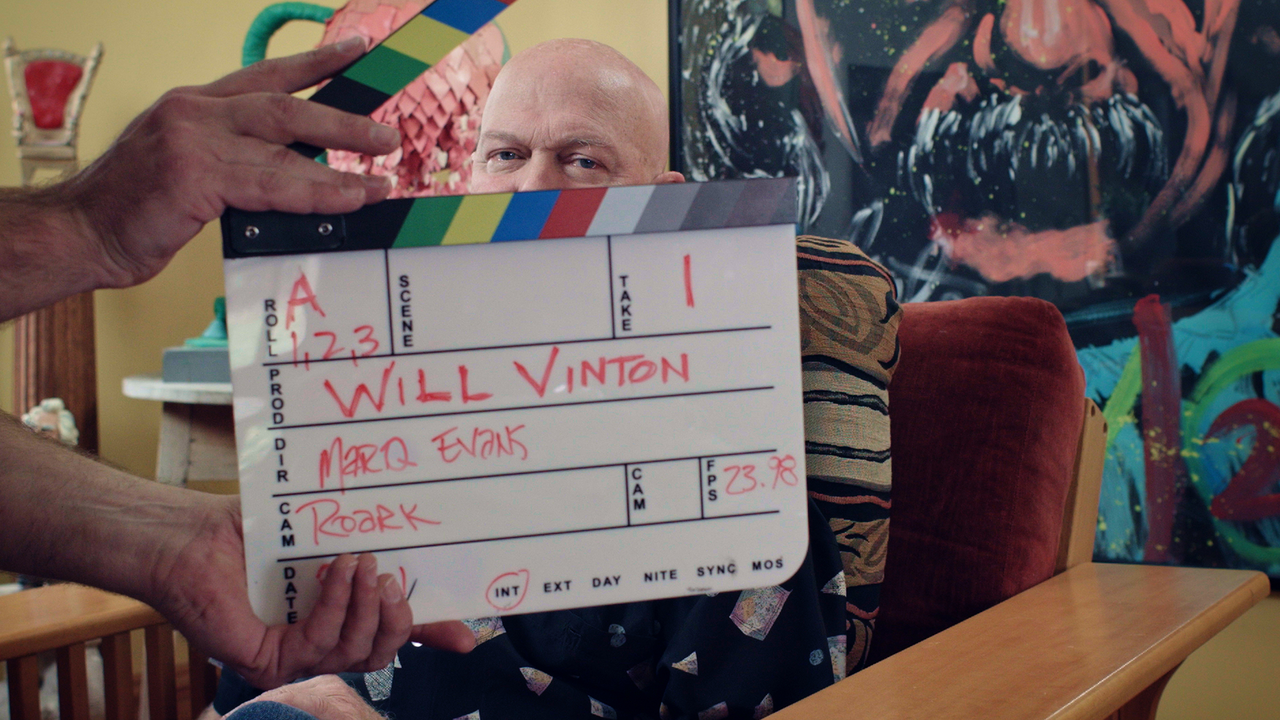Claydream, Marq Evans' new documentary about claymation pioneer Will Vinton, is compelling viewing even if you have little-to-no familiarity with or nostalgia for Vinton's works. It's a story with a little bit of everything: outsized ambitions, artistic wonderment, emotional repression, psychedelic drugs, awards shows, mental illness, overnight success, voice messages from Michael Jackson, assassination threats, bad business decisions and betrayal from a sneaker mogul trying to please his white rapper son. What more could you want in a movie about a guy making vaguely creepy cartoons?
Vinton, who was interviewed for the film before his passing from blood cancer in 2018, makes for a likable yet enigmatic protagonist. Despite his expressive animation, he kept things close to the vest emotionally, and even those close to him aren't always sure what he was thinking or feeling at any given time. Like Edgar Wright's The Sparks Brothers, this is a documentary profile of an artist which is unable to truly engage with its subject matter's personal life in much depth, but in both cases, there's so much drama and creativity within the stories of these artists' professional lives that truly knowing them as people is ultimately unnecessary.
Unlike the two-and-a-half-hour The Sparks Brothers, which managed to feel exhaustive in its artistic analysis, the lean 95-minute Claydream feels like could have gone even further in delving into Vinton's artistic output. As a fast-paced overview, Evans' documentary only really delves heavily into the most important touchstones of Vinton's work: the freewheeling psychedelic creativity of his early short films, the ambitious but completely mis-marketed feature film The Adventures of Mark Twain (best remembered for its terrifying "Mysterious Stranger" sequence) and the overnight fad-like popularity of the California Raisins commercials and specials. There's some psychological analysis of Wilshire Pig, Vinton's unlikable attempt at a Mickey Mouse-type mascot character, but it's not clearly explained what Vinton even really got to do with this character.
The real heart of Claydream, then, with Vinton's personal life elusive and the artistic retrospective condensed to the greatest hits and flops, is a dramatic rise-and-fall business story, which some juicy interpersonal drama along the way. Vinton had aspirations of living up to or even surpassing the legacy of another mustachioed artist-businessman. He wanted to be the next Walt Disney. With his edgy hippie sensibility, perhaps he was closer in temperament to his contemporary Jim Henson. He never reached the level of fame of either of those men, though wildly popular advertisements kept his studio profitable for decades even as his higher artistic aspirations were regularly thwarted.
Two major antagonists emerge in Claydream's telling of Vinton's story, though thankfully the film treats both of them with enough complexity that neither can truly be considered "villains." The first to enter Vinton's life was Bob Gardiner, a fellow artist with whom Vinton co-directed the Oscar-winning 1974 short film Closed on Mondays. Gardiner was a troubled man, brilliant but hard to work with, and Vinton split ways with him. Gardiner grew resentful of Vinton's success and his attempts at revenge reached dramatic extremes. His story ends tragically.
The other antagonist, whose legal conflicts with Vinton serve as Claydream's main framing device, is Phil Knight, the CEO of Nike. Vinton brought Phil Knight in as an investor in Will Vinton Productions in 1998 to raise funds for movies; four years later, Phil Knight bought out the entire company and fired Vinton, placing his animator son Travis (aka the rapper "Chilly Tee") in charge. As wild as much of Vinton's claymation imagery is, there's no other moment in the film with as much pure "WTF" energy as watching the future director of Kubo and the Two Strings drop lousy bars about his penis.
Regardless of the debate legal specifics, the business dealings definitely feel unfair, and it's easy to imagine oneself becoming bitter if placed in Vinton's situation. That Vinton held no grudges against the Knight family, even choosing to look at his own firing as "freeing," makes him incredibly likable. The fact Travis Knight reshaped the studio into Laika and produced such undeniably stunning films as Coraline and ParaNorman probably helped make the shadiness of the business deals that got things there easier to swallow.
Even as he was dying, Vinton stayed positive and creative, developing new ideas. It's that spirit of positivity, even when it appears to be masking a deep sense of hurt, that makes Vinton a truly inspiring figure. He was not the next Walt Disney, but Claydream makes a strong case that he's a figure in animation history worth celebrating.
Directed by Marq Davis, Claydream is streaming at the Tribeca Film Festival through June 23.



